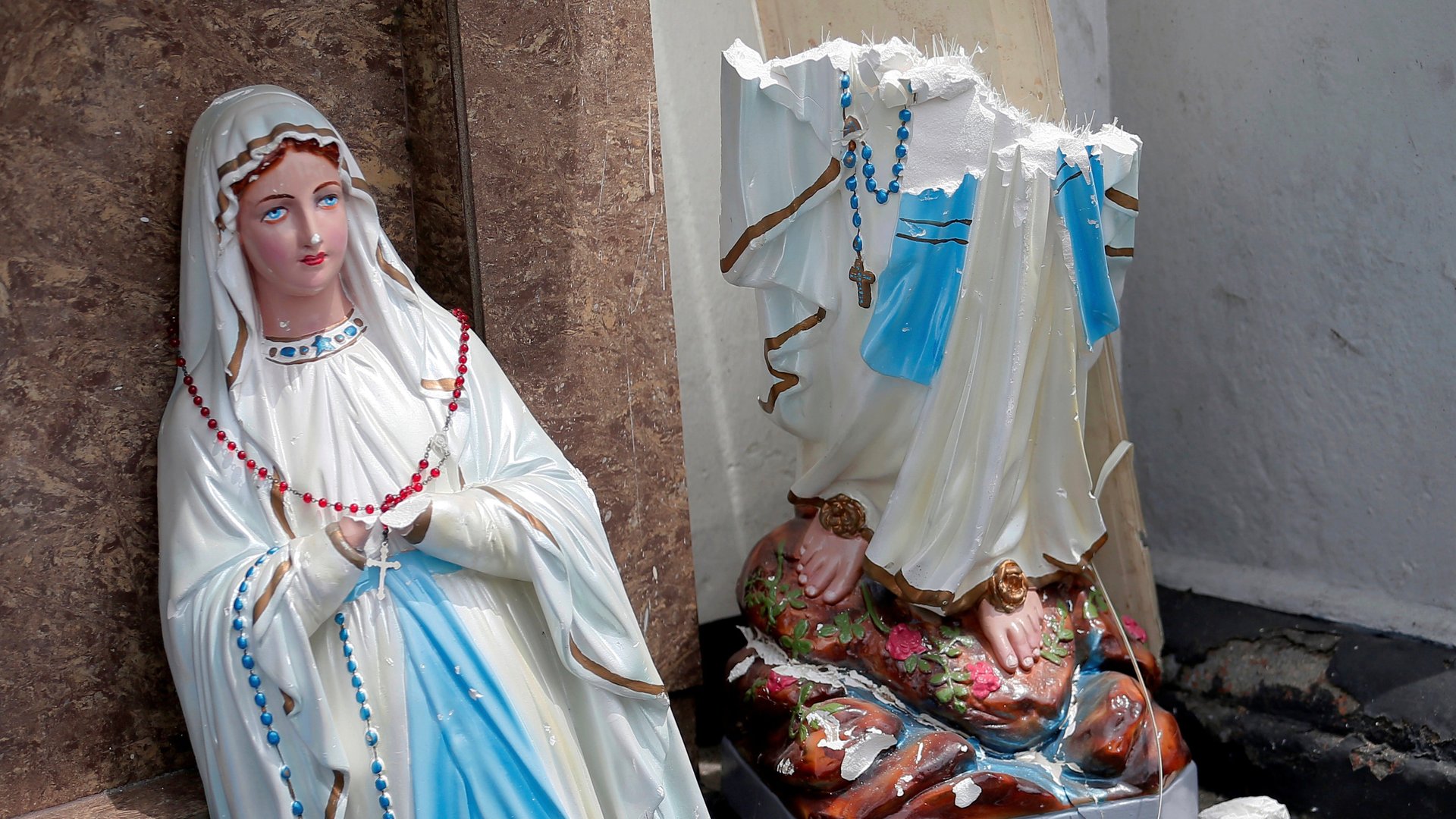Easter Sunday bombings blast the peace in Sri Lanka, killing more than 200 at churches and hotels
At least eight coordinated bombings across Sri Lanka targeted minority Christians and tourists on Easter Sunday, killing more than 200 people and injuring hundreds more in the South Asian island nation.


At least eight coordinated bombings across Sri Lanka targeted minority Christians and tourists on Easter Sunday, killing more than 200 people and injuring hundreds more in the South Asian island nation.
The blasts targeted churches throughout the country and three popular hotels in the capital, Colombo. It was the deadliest violence in Sri Lanka since the end of its civil war 10 years ago, when bombings in Colombo were common.
As evening fell on the island, the government imposed an overnight curfew, police were called back from leave, and the military held an emergency meeting. Authorities also blocked social media, such as Facebook and WhatsApp, according to local tweets. Several people were arrested by police, but thus far, any motive for the attacks remained a mystery.
Prime minister Ranil Wickremesinghe, leader of the United National Party, condemned the attacks on Twitter and called for national unity.
Notably, his most recent tweet before that was on March 14, when the Sri Lankan leader condemned a terrorist attack on a mosque in Christchurch, New Zealand, and expressed his faith that the violence there would not undermine that nation’s “strong history of peace, multiculturalism, and tolerance.”
No person or group has yet claimed responsibility for today’s attacks.
The Sri Lankan constitution gives special privileges to Buddhism, which is practiced by 70% of the country, and does not protect freedom of religion for other faiths. Muslims (13%) and Christians (7%) have been subject to frequent attacks by Buddhist extremists, particularly the group Bodu Bala Sena (BBS), also known as Buddhist Power Force.
In 2018, the country declared a state of emergency after a Buddhist mob burned and attacked Muslim-owned shops and homes, as well as mosques. Recent reports found a steep increase in attacks against Christians, with nearly 70 attacks in 2018.